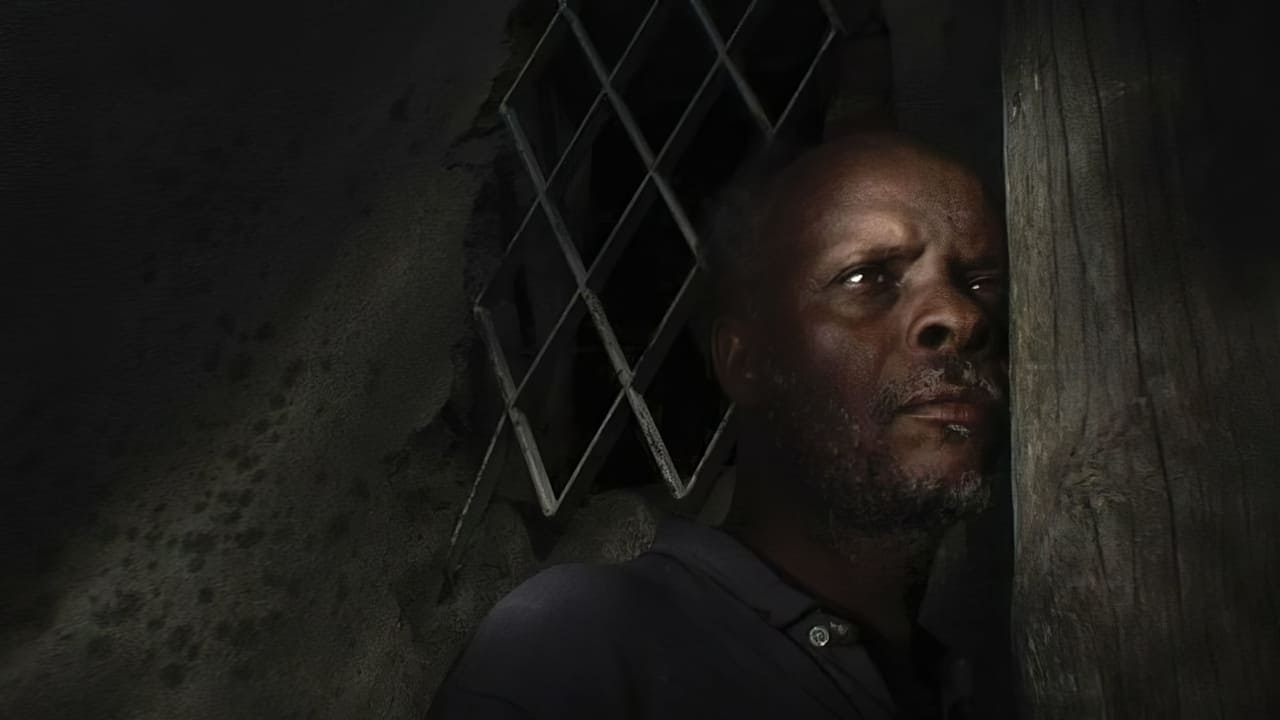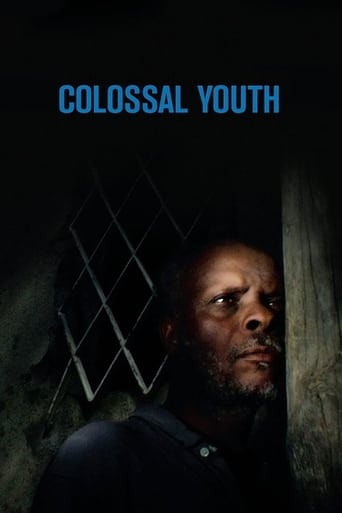Bluebell Alcock
Ok... Let's be honest. It cannot be the best movie but is quite enjoyable. The movie has the potential to develop a great plot for future movies
Clarissa Mora
The tone of this movie is interesting -- the stakes are both dramatic and high, but it's balanced with a lot of fun, tongue and cheek dialogue.
Gary
The movie's not perfect, but it sticks the landing of its message. It was engaging - thrilling at times - and I personally thought it was a great time.
Staci Frederick
Blistering performances.
jojokyra
Sometimes I watch drama to feel "thrust out from the depths."
This is not a drama. This is in a way real and I didnt want to relate.It is like this poor soul that I pass on the street and I didn't want to see again.I can not actually like any of this characters.
It is close to the ugly true. It is unpleasant to watch. The poverty smells very bad.
I cant really accept even the metaphorical beginning as such.It is skillfully shot. Light, composition - it is like a painting.
A painting by Vincent van Gogh. It have the same dull colors as "The Potato Eaters". But except any presence of God.My rating didn't matter. "I dint like it" doesn't mean nothing.
The consummation term "rating" cant apply to this movie.
museumofdave
This film is an immersion in poverty: although each photographic set-up is richly subtle and brilliantly composed, the subject matter of the film deals with the poverty brought on by the destruction of the past, by the loss of jobs and family and community.It should be stated at the onset that probably, were this film were shown in the average theatrical multiplex, 98% of the audience would walk out in the first fifteen or twenty minutes, as the pace is glacial, there is no plot to speak of, dialogue is fitful and seems to be aimless (although if one listens carefully, the effect is cumulatively meaningful) and there is almost no camera movement whatever--single set-ups are made and the viewer often sees the same scene for fifteen or twenty minutes.As many reviews have noticed, there are definitive echoes of Samuel Beckett in the "I cant go on--I'll go on" mood that characterizes much of the absurdity of modern existence, and visually there are echoes of Vermeer--well, enough. If you want action, laughs, logic and easy entertainment this film ain't it; most people would hate sitting through any of this--if, however, you want an intellectual challenge from a thoughtful filmmaker, this might be in your queue--but don't expect the usual feel-good art film.
rasecz
Don't look for a plot. Immerse yourself in the sequence of apparently disconnected vignettes. Get to know the main character, Ventura, a Cape Verdean that emigrated to Portugal around 1972; now, retired and still poor.This is scrambled story telling in slow motion. Often I found myself thinking about Beckett. The dialogs appear irrelevant, having to do with mundane personal life experiences, friends and relatives. These are poorly educated people after all. In fact one better pay close attention to the prate. It is through small revelations and asides in conversations that we pick up the clues to the life of Ventura and those close to him.The quiet and unpretentious acting, the extended takes, the absence of broad movements, the occasional lengthy silence, all can be soporific. Yet one needs to listen carefully.The most captivating aspect is what the director and the cameraman did. Each scene is meticulously framed. Except for a couple of simple pans, the camera is invariably fixed. The overall result is like walking through an art museum. Each shot is a painting, the actors sometimes still, sometimes moving in and out of the frame. The naturalistic lighting reminded of paintings by Rembrandt of persons of a certain standing in Dutch society. Here Pedro Costa paints the faces of simple folks in the stark and denuded ambiances of a poor neighborhood. The visual effect is magical.The actors are not dramatically stressed, except for the principal female role. Her long, inward monologues feel so authentic and natural that I could swear she was acting her own true self. The male actors are stiff placeholders, but don't dismiss what they are saying.The story plays as a song. There is a refrain in the form of a love letter to a woman left behind in Cape Verde. It is repeated many times throughout. Again pay attention to the words each time as small variations occur with a telling commentary.The ironic title is delectable.
Binoche
We can find lots of examples like this. Today, yesterday, all along the history of movie making. Did you know that, in its time, "Citizen Kane" was not exactly recognized? We need movies that really dare to go against the "easy thinking" of blockbusters, Borat and others... movies that some people avoid because they feel... bored. Bored??? Why do people think that their boredom is important for the destiny of the world?... Maybe for the destiny of "their" world. But who cares? This is just one of the greatest movies of 2006, a challenge to look at people and places without the boring mediocrity of reality TV. Yes, boring.

